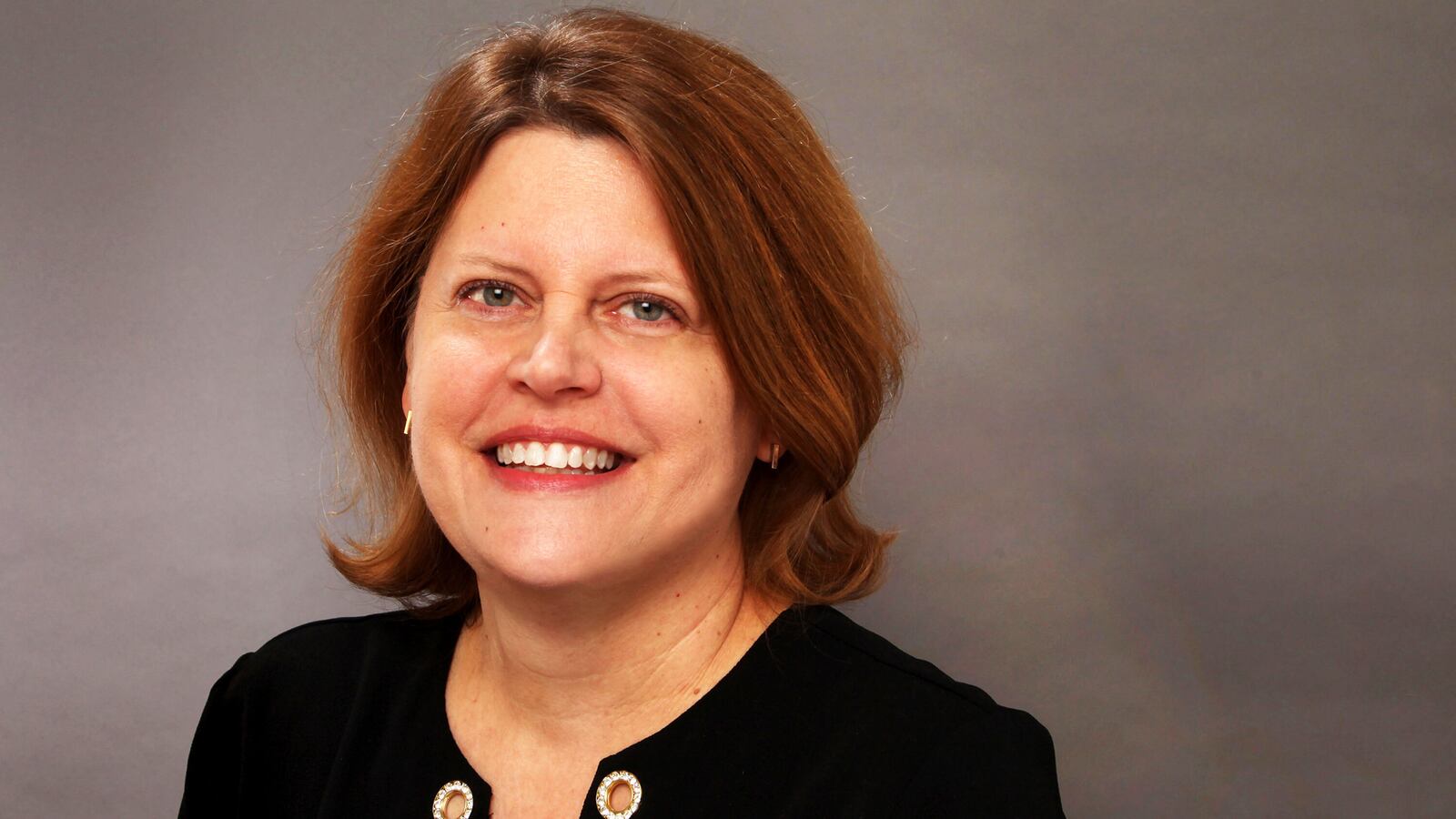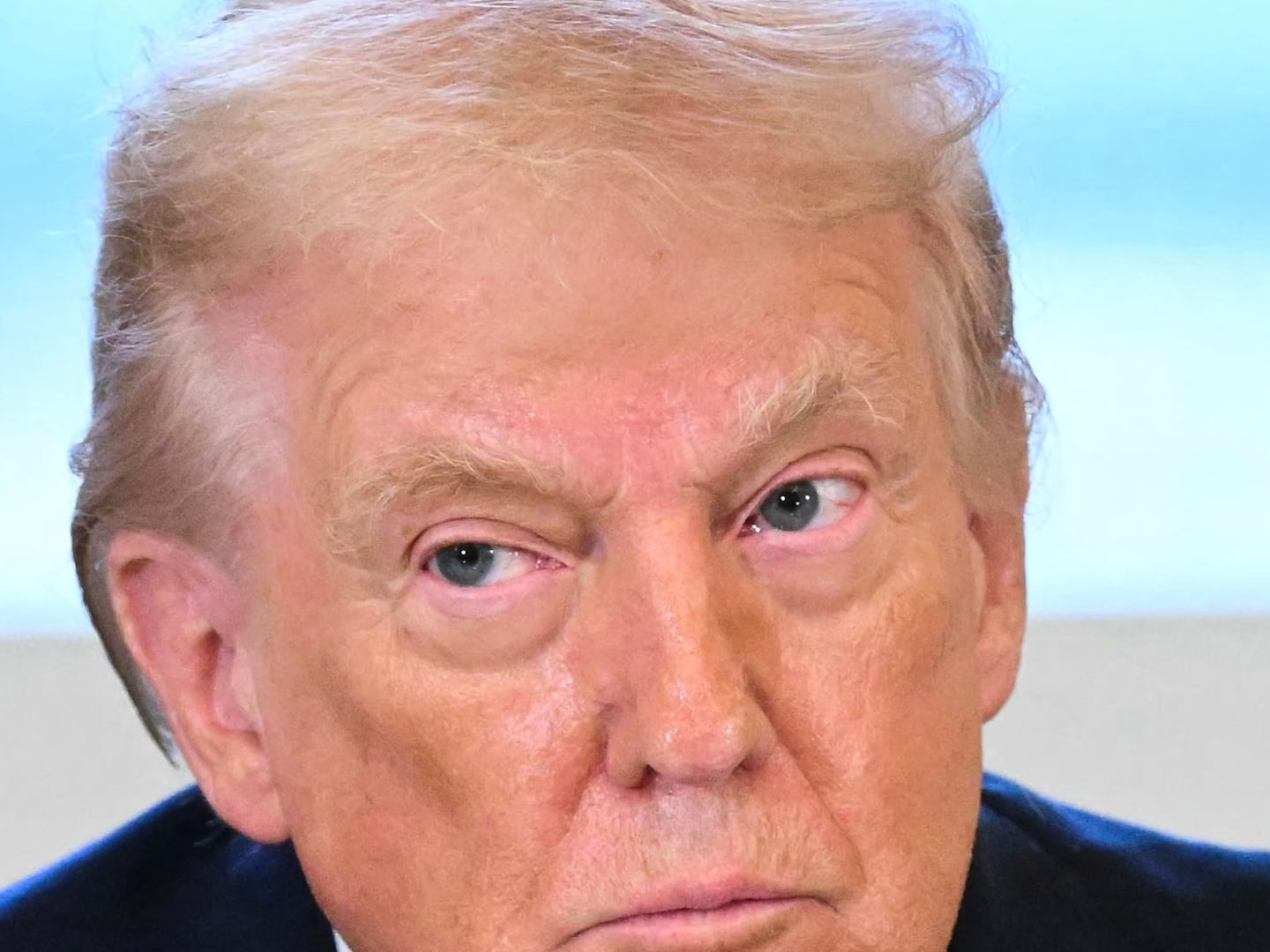Answering the most intriguing guessing game in journalism, The Washington Post has chosen Sally Buzbee to be its new executive editor, the first woman to hold the job. Buzbee, 55, is currently the executive editor of the Associated Press and will move into the new role next month, the newspaper announced Tuesday.
The announcement ends a months-long search for a successor to Executive Editor Marty Baron at the helm of one of the most prominent media organizations on the planet. Buzbee was a surprise choice, never a public front-runner among candidates that reportedly included Cameron Barr, the Post’s acting executive editor; the paper’s national editor Steven Ginsburg; New York Times assistant managing editor Marc Lacey; and even, in the early stages, former Post managing editor Kevin Merida, an ESPN executive who was recently named top editor of the Los Angeles Times.
In a company-wide memo, Publisher Fred Ryan announced that the Post had hired Buzbee, who ascended through the ranks at the AP as a reporter and editor overseeing the wire service’s investigative journalism, helming coverage of the Middle East and the Iraq war from the AP’s Cairo bureau, and becoming Washington bureau chief before succeeding Kathleen Carroll in January 2017 as AP’s senior vice president and top editor.
In the AP job, Buzbee oversaw a multiplatform operation of around 2,800 journalists based in 250 locations in 100 countries—a global newsroom more than twice the size of the Post’s.
“Sally Buzbee has an exceptional record of achievement and a tremendous wealth of experience in leading a global news organization,” Ryan wrote. “In an extensive search that included many of the best journalists in America, Sally stood out as the right person to lead The Post going forward. She is widely admired for her absolute integrity, boundless energy, and dedication to the essential role journalism plays in safeguarding our democracy.”
Buzbee, for her part, said, “The Washington Post is an institution with a rich journalistic legacy that is on the cutting edge of digital media. This puts The Post at the forefront of journalism’s future and presents an enormous opportunity for growth. It will be an honor to lead this incredible group of journalists.”
Gary Pruitt, the AP’s president and CEO, said the wire service will immediately begin a search for Buzbee’s replacement. “This is bittersweet news for the AP. Sally has been an exceptional leader, guiding AP’s journalists and news report through some of the most pivotal news events of our time,” Pruitt said in a statement. “We are sorry to lose Sally but very happy for her as she takes this next step in her career. We look forward to watching Sally succeed at the Post.”
AP Washington bureau chief Julie Pace, who succeeded Buzbee in that perch, echoed those sentiments in a tweet. “I am bursting with pride for the incomparable @SallyBuzbee, excited for my WaPo friends to have the chance to work with her, and of course, incredibly sad she is leaving @AP. There is simply no better newsroom leader and mentor than Sally.”
Pace added: “One other thing about @SallyBuzbee: she’s an amazing mom and role model for other working moms in journalism. Her kids were a presence in the newsroom, she took their phone calls, told stories about them. That meant a lot to me and other women in the @AP Washington bureau.”
The Post’s new executive editor, who has two daughters, has been touched by personal tragedy. Her husband John Buzbee, a career foreign service officer, died of colon cancer in September 2016. A third daughter, Anne Marie, died in infancy.
Several of Buzbee’s AP colleagues described her, in interviews with The Daily Beast, as a popular and respected boss whose departure came as a surprise. “I never thought she would ever leave AP,” said a Washington-based AP reporter, who praised Buzbee’s “integrity, commitment to journalism [and] commitment to diversity,” and her penchant for “standing up for her reporters.”
As Washington bureau chief and later as executive editor, Buzbee was a relentless advocate for press freedom and access, and she was bureau chief when the Obama administration, during a 2013 leak investigation, secretly obtained the phone records of AP reporters—an unprecedented attack on the First Amendment, escalated in due course during the Trump administration.
But, according to colleagues, she was more energized by the adrenalin rush of leading breaking news coverage than as a public advocate—a high-profile role in which she became more assured after taking the executive editor’s job. Buzbee was mostly uninterested in the ceremonial aspects of the job: Whenever she would arrive at a special event, such as the Olympics, she would demand of her colleagues, “Give me a job to do,” and that might have involved pitching in on reporting, answering phones, or even handing out credentials.
Buzbee, a native of Washington state, spent her high school years in Olathe, Kansas, graduated from the University of Kansas, and began her journalism career in the AP’s Topeka bureau in 1988. Decades later, she earned an MBA from Georgetown University.
Buzbee’s appointment to succeed Baron, who retired at age 66 in February, heralds perhaps a decade or more of new leadership for the newspaper owned by Amazon billionaire Jeff Bezos. The paper planned to host a virtual town hall later on Tuesday, where the staffers could pose questions to the new top editor.
Buzbee’s hiring comes at a moment of transition for the Post. Buoyed by Bezos’ purchase of the paper—for a bargain price of $250 million—from the storied Graham family in 2013, Baron oversaw an expansion of the newsroom, nearly doubling the number of reporters on staff during his tenure. The election of former President Donald Trump also provided an opportunity for the Post to flex its reporting chops, breaking major stories including the Access Hollywood tape, Trump’s description of immigrants from “shithole countries,” and other major White House and administration scoops.
But the paper has also faced major internal criticism over its fumbling of issues related to staff coverage areas and battles over objectivity. Staff were outraged by management's decision to prohibit reporter Felicia Sonmez from writing about stories related to sexual assault. The leadership team, including several managing editors who were considered for the top job at the paper, argued that because Sonmez was outspoken about her own experience as a sexual assault survivor, she could not cover stories related to the topic objectively. After the news leaked earlier this year, the paper reversed course, lifting the ban.
Staff have also been frustrated by other policies, including the paper’s strict social media guidelines and its somewhat confusing recent internal guidance around what types of protests and celebrations reporters are allowed to attend as participants.









